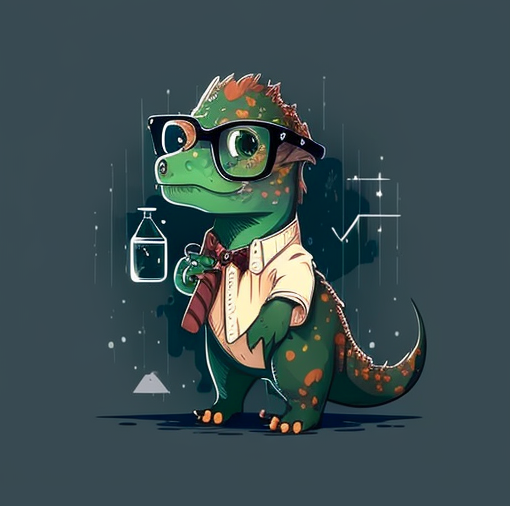Introduction
In today’s digital age, the field of data science has emerged as a powerful force that is transforming industries and making a significant impact on people’s lives. Data scientists, with their expertise in extracting insights from large and complex datasets, play a crucial role in leveraging the power of artificial intelligence (AI) to drive innovation and solve complex problems. In this article, we will delve into the world of data scientists, exploring their skills, daily routines, and the ways they are positively impacting society through AI.
What is a Data Scientist?
Data scientists are professionals who possess a unique blend of skills in statistics, programming, and domain knowledge. They are equipped with the tools and techniques necessary to collect, analyze, and interpret vast amounts of data, deriving meaningful insights and making data-driven decisions. These professionals are proficient in programming languages such as Python or R and have a deep understanding of machine learning algorithms.
Skills and Qualifications
To excel in the field of data science, one must possess a diverse set of skills. Strong mathematical and statistical knowledge is essential for effectively analyzing and interpreting data. Additionally, programming skills are vital for data manipulation, model development, and implementation. Data scientists also need excellent communication and storytelling abilities to effectively convey insights to stakeholders.
The Role of a Data Scientist
The role of a data scientist varies depending on the industry and organization they work for. Generally, their responsibilities revolve around solving complex problems using data-driven approaches. They collaborate with cross-functional teams to identify business challenges, collect and clean relevant data, analyze patterns, develop models, and present actionable insights. Data scientists play a crucial role in developing AI systems, enhancing decision-making processes, and driving innovation within their organizations.
A Day in the Life of a Data Scientist
A data scientist’s daily routine involves a diverse range of tasks, requiring them to be versatile and adaptable. Here is an overview of what a typical day may look like for a data scientist:
Morning Routine
As with any profession, data scientists start their day by organizing and planning their work. They review and prioritize their tasks, respond to emails, and catch up on industry news and the latest research in their field. This helps them stay informed and up-to-date with emerging trends and techniques.
Data Exploration and Analysis
Data exploration is a crucial step in the data science process. Data scientists spend a significant amount of time understanding the datasets they are working with. They clean and preprocess the data, ensuring it is suitable for analysis. Exploratory data analysis techniques are employed to identify patterns, correlations, and outliers within the data, providing insights into potential relationships and trends.
Model Building and Training
Once the data has been analyzed, data scientists move on to building and training machine learning models. They select appropriate algorithms and techniques based on the problem at hand and the nature of the data. This involves feature engineering, model selection, hyperparameter tuning, and evaluating model performance. The goal is to develop accurate and robust models that produce reliable predictions or classifications.
Collaboration and Communication
Data scientists often work in interdisciplinary teams, collaborating with domain experts, engineers, and business stakeholders. They participate in meetings and discussions to understand the requirements and objectives of the project. Effective communication skills are essential for data scientists to articulate complex concepts and insights to non-technical stakeholders. They present their findings and recommendations in a clear and understandable manner, enabling informed decision-making.
Impacting People’s Lives through AI
One of the most significant aspects of a data scientist’s role is the potential to make a positive impact on people’s lives through the power of AI. By analyzing vast amounts of data, data scientists can uncover insights that lead to advancements in various fields, including healthcare, finance, transportation, and more. AI-powered solutions can improve disease diagnosis, enhance fraud detection, optimize transportation systems, and personalize user experiences, among many other applications.
Real-World Examples
Data science has already made significant contributions to society. For instance, in the healthcare sector, data scientists have developed models that can predict disease outcomes, identify high-risk patients, and optimize treatment plans. In the financial industry, fraud detection algorithms help identify suspicious transactions, protecting individuals and organizations from financial losses. Additionally, data-driven insights have revolutionized transportation systems, enabling efficient route planning and reducing congestion.
Challenges Faced by Data Scientists
While data science offers immense opportunities, it also comes with its own set of challenges. The field is constantly evolving, and data scientists need to stay updated with the latest techniques, algorithms, and tools. Acquiring and cleaning data can be time-consuming and challenging, as data quality and availability vary. Data privacy and ethical considerations are also crucial, as handling sensitive data requires stringent security measures. Lastly, effectively communicating complex findings to non-technical stakeholders can present a challenge.
Conclusion
Data scientists play a vital role in today’s data-driven world, leveraging AI to solve complex problems and make a positive impact on society. Their skills in data analysis, modeling, and communication enable them to extract meaningful insights and translate them into actionable solutions. As the field continues to evolve, data scientists will continue to drive innovation, transforming industries and improving the lives of people around the globe.







Leave a Reply